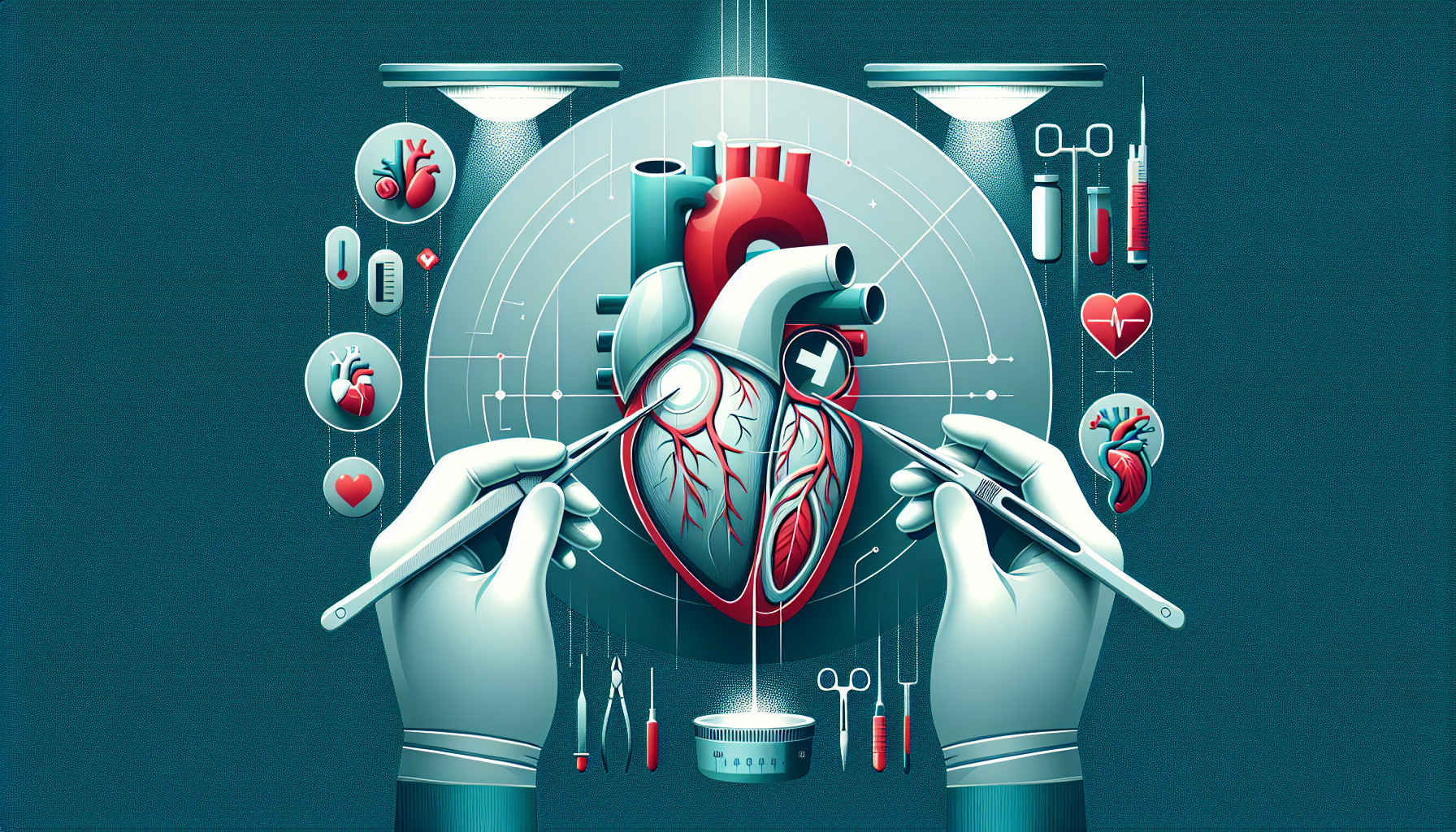Our Summary
Without access to the full content of the research paper, it’s difficult to provide an accurate summary. However, based on the keywords, the research potentially discusses aortic dissection, a serious condition involving a tear in the wall of the aorta (the largest blood vessel in the body), and its relation to the great vessels (the major arteries directly stemming from the heart). The keyword ‘David’ might refer to a specific surgical procedure or a researcher in the field. The exact focus of the paper could range from causes and symptoms of aortic dissection, to treatment methods and surgical techniques.
FAQs
- What is the David procedure in relation to valve replacement?
- What is the role of the aorta and great vessels in valve replacement?
- What is aortic dissection and how does it relate to valve replacement?
Doctor’s Tip
After valve replacement surgery, it is important to follow a healthy lifestyle with regular exercise, a balanced diet, and avoiding smoking to promote overall heart health and reduce the risk of complications. It is also important to attend regular follow-up appointments with your healthcare provider to monitor your progress and ensure the success of the surgery. If you experience any concerning symptoms such as chest pain, shortness of breath, or palpitations, be sure to seek medical attention immediately.
Suitable For
Patients who are typically recommended valve replacement include those with severe narrowing (stenosis) or leaking (regurgitation) of the heart valves, as well as those with congenital heart defects or valve abnormalities. Patients who have symptoms such as chest pain, shortness of breath, fatigue, or fainting spells may also be recommended for valve replacement. Additionally, patients with a history of infective endocarditis or previous valve replacement surgery may require valve replacement.
Timeline
Before valve replacement:
- Patient experiences symptoms such as shortness of breath, chest pain, fatigue, and dizziness.
- Patient undergoes diagnostic tests such as echocardiogram, MRI, and cardiac catheterization to determine the severity of the valve disease.
- Patient and healthcare team discuss treatment options, including valve replacement surgery.
- Patient undergoes pre-operative assessments and preparations for surgery.
After valve replacement:
- Patient undergoes valve replacement surgery, which can be done through open-heart surgery or minimally invasive techniques.
- Patient is closely monitored in the intensive care unit (ICU) immediately following surgery.
- Patient undergoes a recovery period in the hospital, which includes physical therapy and monitoring for complications.
- Patient is discharged from the hospital and continues recovery at home, with follow-up appointments with the healthcare team.
- Patient may need to take medication to prevent blood clots or manage other heart conditions.
- Patient undergoes cardiac rehabilitation to improve heart health and overall well-being.
- Patient continues long-term follow-up with the healthcare team to monitor the function of the replaced valve and overall heart health.
What to Ask Your Doctor
- What type of valve replacement procedure do you recommend for my condition?
- What are the risks and potential complications associated with valve replacement surgery?
- How long is the recovery period after valve replacement surgery?
- Will I need to take medication or make lifestyle changes after the procedure?
- How often will I need follow-up appointments to monitor my heart health post-surgery?
- Are there any restrictions on physical activity or diet that I should follow after valve replacement surgery?
- What are the expected outcomes and success rates for valve replacement in patients with my specific condition?
- Are there any alternative treatment options to valve replacement that I should consider?
- What are the potential long-term effects or complications of valve replacement surgery?
- How will valve replacement surgery affect my overall quality of life?
Reference
Authors: Khachatryan Z, Herajärvi J, Leontyev S, Borger MA. Journal: J Thorac Cardiovasc Surg. 2022 Sep;164(3):814-819. doi: 10.1016/j.jtcvs.2021.02.101. Epub 2021 Apr 3. PMID: 33934897
